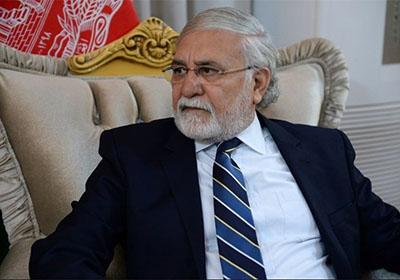In December 2011, many Iraqis went out to the streets to celebrate the exit of US military troops from their country – describing the American soldiers as occupying forces. But, they could have never imagined that only three years after the exit of the last US combat soldier, their country will witness a brutal sectarian civil warcausing deaths to thousands of Iraqis within a very short period. The rise of the militant extremist Islamic State of Iraq and Syria (ISIS) has already resulted in the fall of Mosul, the second largest city in Iraq and a number of other cities in Anbar province. The ISIS militants already control the border crossing with Syria and have a stated objective of creating an Islamic state in Syria, Iraq and beyond.
When the last US soldier crossed into Kuwait, President Obama officially declared the end of the Iraq war and described the overall American engagement in the nation as ‘victorious’, something which supposedly provided the right to self-determination to the people of that nation. With the US military involvement in Iraq coming to a gradual end, Obama decided to concentrate his military resources in Afghanistan and ordered a troop surge in 2008. As history would tell, none of the strategies seemed to have worked for either of the countries.
The stated objective of the Iraq war was to overthrow a brutal dictator, Saddam Hussein, who allegedly had ambitions for chemical and nuclear weapons. The power vacuum created after the exit of Saddam was filled up, under US support, by an exclusive and corrupt Shiite dominated government under the leadership of Prime Minister Nouri al-Maliki. The resulting regime openly favored Iranian policies and marginalized Sunni groups. On the other hand, in Afghanistan; theUS strategy was simple - use force to dismantle Taliban infrastructure. Again, that objective was hardly achieved and the net tangible outcome of all these years of US involvement in Afghanistan was that the Taliban now have an official address in Qatar; while the Americans, who claim to never negotiate with terrorists, released five top Taliban commanders from Guantanamo bay.
The situationin Afghanistan might not be similar to that in Iraq.But if the next Afghan government does not sign the Bilateral Security Agreement (BSA) and Americans withdraw all its combat troops after 2016, then thereis a high likelihood that Afghanistan might experience what is currently going on in Iraq in the form of another civil war. Although, unlike Prime Minister Maliki, Afghan President Hamid Karzai was able to create an inclusive government that included former Jihadists and power brokers; but in the pursuit of political inclusiveness, President Karzai failed to devote much attention towards nation-building and creation of a progressive government infrastructure. Indeed, his strategy of sharing power for establishing an inclusive government dramatically promoted patronage networks and nepotism and eventuallyfrustrated any hope of building a functional governmentor deliver good public services to the Afghans.
With no solid government institutions in place and an informal political environment based on patronage and favors; Afghanistan as a nation remains extremely vulnerable to ethnic fragmentation. And as evident from the 2014 Afghan election campaigns, faultlines arealready getting visible among the nation’s diverse ethnic groups and without a determined approach towards delivering an inclusive development oriented government, these cracks are only going to widen. And as history suggests, ethnic violence has always been a very real threat to the Afghan society.
In a nutshell, for deterringany future ethnic conflict, Afghans should remember the bitter experiences of the past and the ongoing turmoil in Iraq should only act as an eye-opener for the future leader of Afghanistan about the consequences of not having a strategic agreement with US. Afghanistan still needs more time to become self-dependent and strategically, it is vital for Afghanistan to develop a long term strategic partnership with the United States. The presence of US troops and continuation of US assistance will help Afghans buy that much needed time to become self-sustainable. At the end of the day, the life and prosperity of ordinary Afghan citizens are at stake.
Director at Research and Advocacy Organization for Development, former Visiting Fellow at Ash Center, Harvard University.
The views expressed in this Op-Ed are those of its author and not representative of TOLOnews.



Comment this post